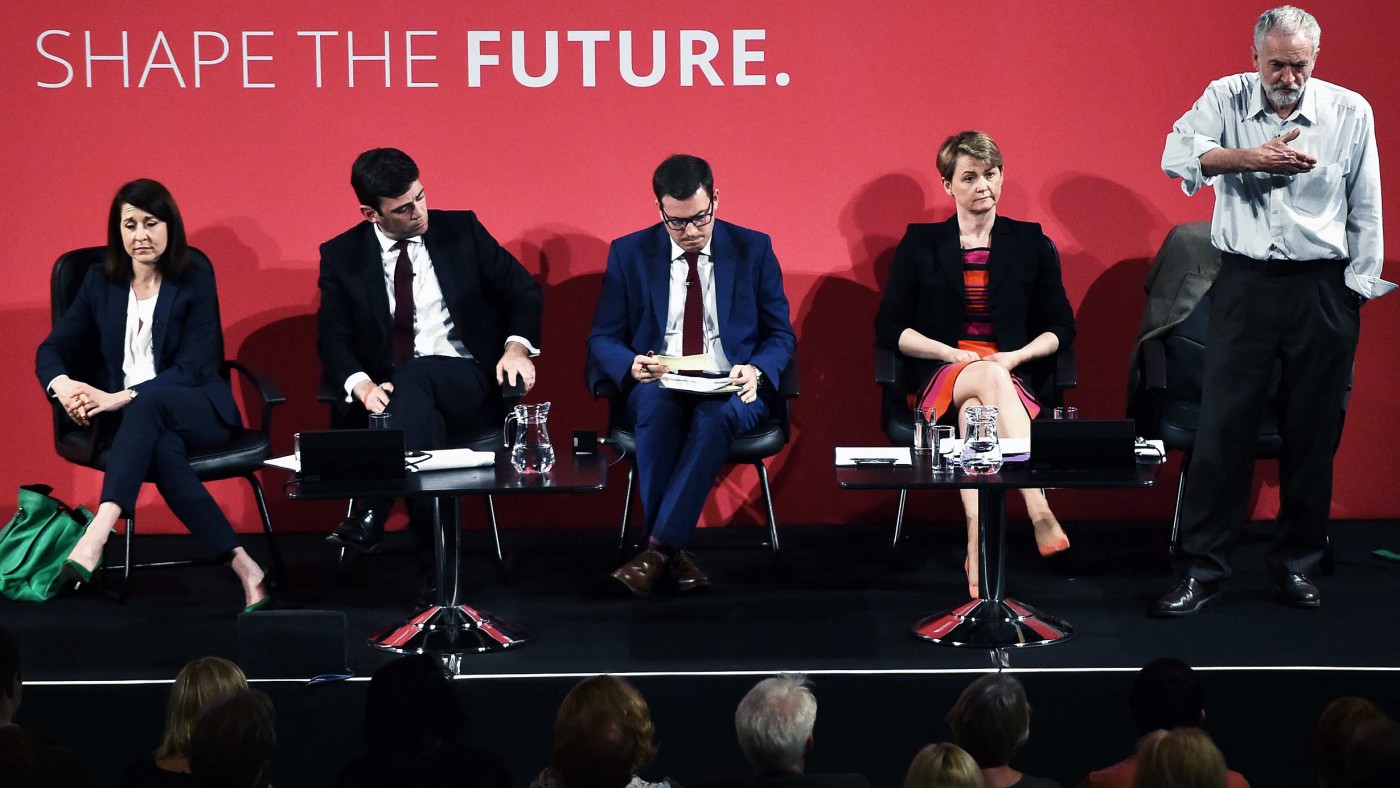“It’s all your fault,” a Labour-supporting friend told me, crossly. “If you and your mates hadn’t started this open primaries bollocks, Labour wouldn’t now be on the point of self-destruction”.
“This thing of darkness I acknowledge mine,” I replied sonorously, quoting Prospero. And I do acknowledge it. Eleven years ago, Douglas Carswell and I set up a group called Direct Democracy to lobby for the decentralisation and democratisation of decision-making. Elemental to our plan was the dispersal of power away from political activists. Open primaries, we argued, would tilt the balance from the executive to the legislature, create a more diverse Parliament, abolish safe seats and the complacency that goes with them, weaken Whips and strengthen citizens.
It’s worth pointing out that even we, the biggest open primary fans in Britain, never suggested using them to choose party leaders. Under Britain’s parliamentary system, the Prime Minister and the Leader of the Opposition must be able to command majorities of their MPs. Still, it’s fair to say that we helped make primaries fashionable. So when, in the aftermath of the row over a dodgy candidate selection in Falkirk, Labour was groping about for a way to reform its rules, the party naturally grasped at the idea of empowering people who were not already signed-up Labour members. Hence the new category of £3 supporters; and hence the surge of people taking advantage of that category to vote in the Labour leadership election.
So is it all my fault? Is Jeremy Corbyn a sort of Frankenstein, a monstrous and unintended by-blow of a new selection system? Has his success discredited open primaries for good? Plenty of people are saying so, often with a hint of smugness. But they’re wrong. The rise in support for the Marxist candidate, if anything, makes the case for primaries even stronger.
Consider, first, the opinion polls. So far, after all, opinion polls are all we have to go on. Surveys do indeed show that Jeremy Corbyn is ahead among the £3 supporters. But they also show that he is ahead with the other two categories of voters: the full members of the Labour Party and the trade union affiliates. There is no evidence that Labour’s new backers – the “infiltrators” as Blairites keep calling them – have altered the temper or alignment of the party.
The reason the honest old duffer is doing so well has nothing to do with the few hundred far-Left activists who have just joined the party, still less with the couple of dozen Tories who signed up as a prank. Corbynism, rather, should be seen as part of the same phenomenon as the rise of Syriza or the SNP: the surge in Leftist populism that has swept Europe since the bank bailouts.
The same polls that show Corbyn ahead among Labour activists show him doing badly among voters at large. But voters at large aren’t involved in this contest. You could argue, in other words, that Compañero Corbyn is the beneficiary of a primary that isn’t open enough.
Not, to repeat, that I want the whole country to vote on who gets to be a party leader. Open primaries should be used to pick candidates for public elections. Jeremy Corbyn should face one to be the Labour candidate for Islington North (he would win comfortably, being both an assiduous MP and a true voice for that Leftist sliver of London); but he shouldn’t face one to be leader of his party. That ought to be for his fellow MPs to decide. If all those MPs had been selected through primaries, their authority would be far greater.
Consider the primaries currently taking place in the United States. It is, I suppose, conceivable that Bernie Sanders might be the Democrats’ candidate, and it is theoretically possible that Donald Trump will win the Republican nomination. But, in reality, neither of these things is likely to happen. You know why? Because enough ordinary people are involved in the primary process to dilute the influence of the party militants.
Primaries test candidates in every kind of scenario: on local radio, at big rallies, over coffee in private homes, in televised debates. As a result, they tend to weed out the duds and the crackpots. Not always; but more often than any alternative system. Although they have been in use for more than a century in the United States, there are hardly any instances of a poll being prejudiced by supporters of a rival party – precisely because the process is open, and normal people don’t behave that way.
The way to dilute the influence of the hard Left in Labour – or of any other faction in any other party – is not to narrow the base, but to widen it. Is that really such a difficult concept?


